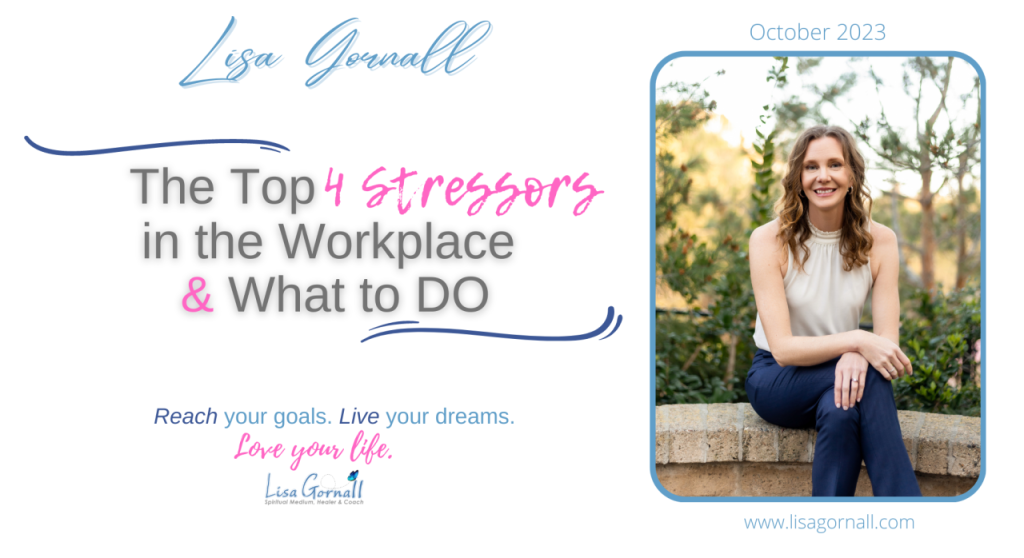What are the signs your high performers aren’t doing “okay” at work anymore?
How close are they to burnout?
The work environment is a big part of how much your high performers will overwork.
Is overworking encouraged with:
- Questions and meetings outside of work hours?
- Not encouraging them to take true vacations and uninterrupted time off from work? Work travel on weekends?
- Giving them more work than they can humanly handle?
- Support questions they don’t answer honestly as they continue to overwork to try to make a dent in their workload?
None of these are good and will lead high performers onto a path to burnout. No one wants that.
As a Spiritual Medium and Energy Strategist, I have personally experienced burnout twice in my career. I let myself down, my team and my family.
Burnout, stress leave and constantly being overworked are completely preventable with the right support. I can help.
I’m going to share with you the 4 signs I’ve personally noticed that tells me a High Performer is starting to check out and burnout. Let’s dive in!
4 Signs Your High Performers are on a Path to Burnout:
High performers aren’t known to do these things, so if they are, they are your warning signs.
1. They Start Using their PTO
High performers typically lose PTO from not using it. If they’re starting to use it, while that is good, do a solid check in on them and make sure they’re doing okay. This is your first red flag as an employer.
I had a client that started using her PTO to extend weekends and for job interviews. You want to check in immediately if you see this change.
Most high performers DO NOT want to leave. They will stay if they are compensated accurately for their work, given the correct title for the work they are performing daily and have a proper workload for their role.
2. Getting Sick or Injured Often
I see this one all the time. Often the only way a high performer gets to rest is if they get sick or injured. It was true for me and it’s true for your high performers that don’t have support. While these aren’t things they do intentionally, these are things that take them down.

I had a client this year that had to have a double knee surgery. On top of that, she kept getting sick with everything from Covid to Sinus Infections and then had complications from both surgeries. All of which made her frustrated because she couldn’t work.
She was the definition of overworked. As she started to realize rest was key to her healing with me, she started to find ways to recharge on the weekend instead of working more. Both knees are now healed. But she was given a lot of physician ordered time off in the process. She didn’t even get to have fun. All she did was heal.
Think of work-life balance as an energy balance for your high performers. Their energy is measured like the battery on a cell phone. The less energy they have, the more they’re performing on a deficit. Eventually they’re going to have to STOP and recharge. You don’t want that.
3. Performance Decrease
There is a point where the high performer realizes that doing more isn’t the answer because they keep getting more to do. The list doesn’t end and the pile keeps growing, often more than other team members.
They feel overwhelmed, exhausted and at their breaking point – these are their words by the way. This is when you’ll notice them missing deadlines, performing less and caring less about what they’re getting done. These are all really bad signs if you want to keep this top employee.
When high performers start to drop the ball or decline new assignments, chances are they are in the process of accepting a new position somewhere else. This happens because they’ve already decided to leave your company and they are starting to guide their energy into the excitement of the new position and company.
If you discuss the performance decrease with them and they are not seeking out a new position, be wary that they are on a path to stress leave or burnout – both are bad for everyone on their team.
4. High Performers START Asking for Support
High performers should ask for support often when their workload isn’t manageable. But they don’t. They work longer hours, start doing stuff on the weekend and before you know it, they’re working more hours than many of their team members on their path to burnout.
Asking for help or support is often a high performer’s last ditch effort to stay in the company or in the position. When they start to ask for support when they never have before – this needs to become your top priority to support them.
I know because I’ve been helping them individually for decades and this is one of the things I have them start to do before they start to look for employment elsewhere. If your high performer is asking for support, stop overloading them with more tasks and find help for them on the team immediately if you want to keep this employee.
Work-life balance is the only way forward to creating sustainable success and work-life balance. You want your employees to have both of these things to retain them.
When you tell me sustainable work-life balance isn’t possible, I’m going to help your team find that belief and change it. Burnout and stress leave are completely preventable. Support your high performers with individualized support – I can guarantee you, they need it.










